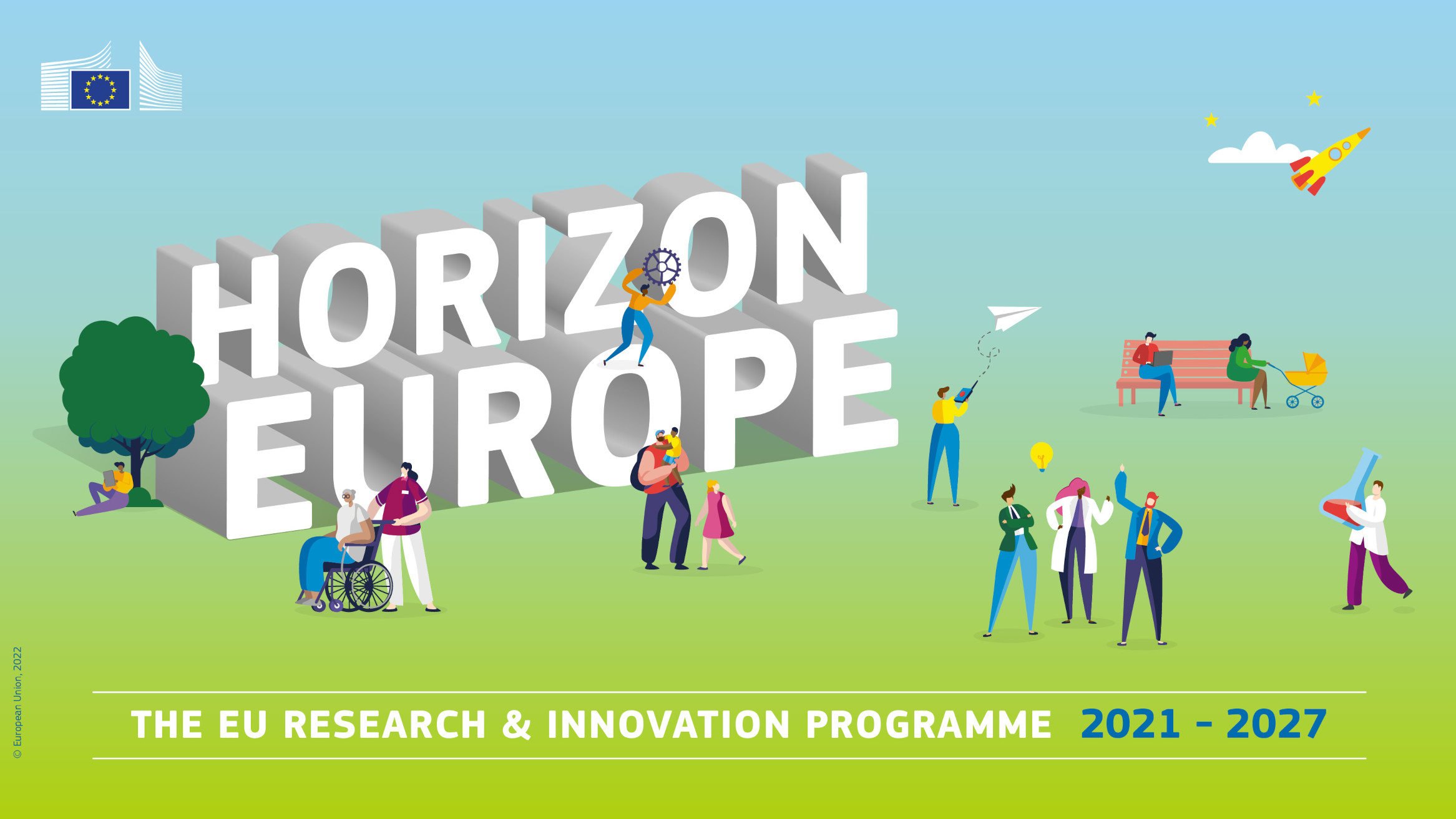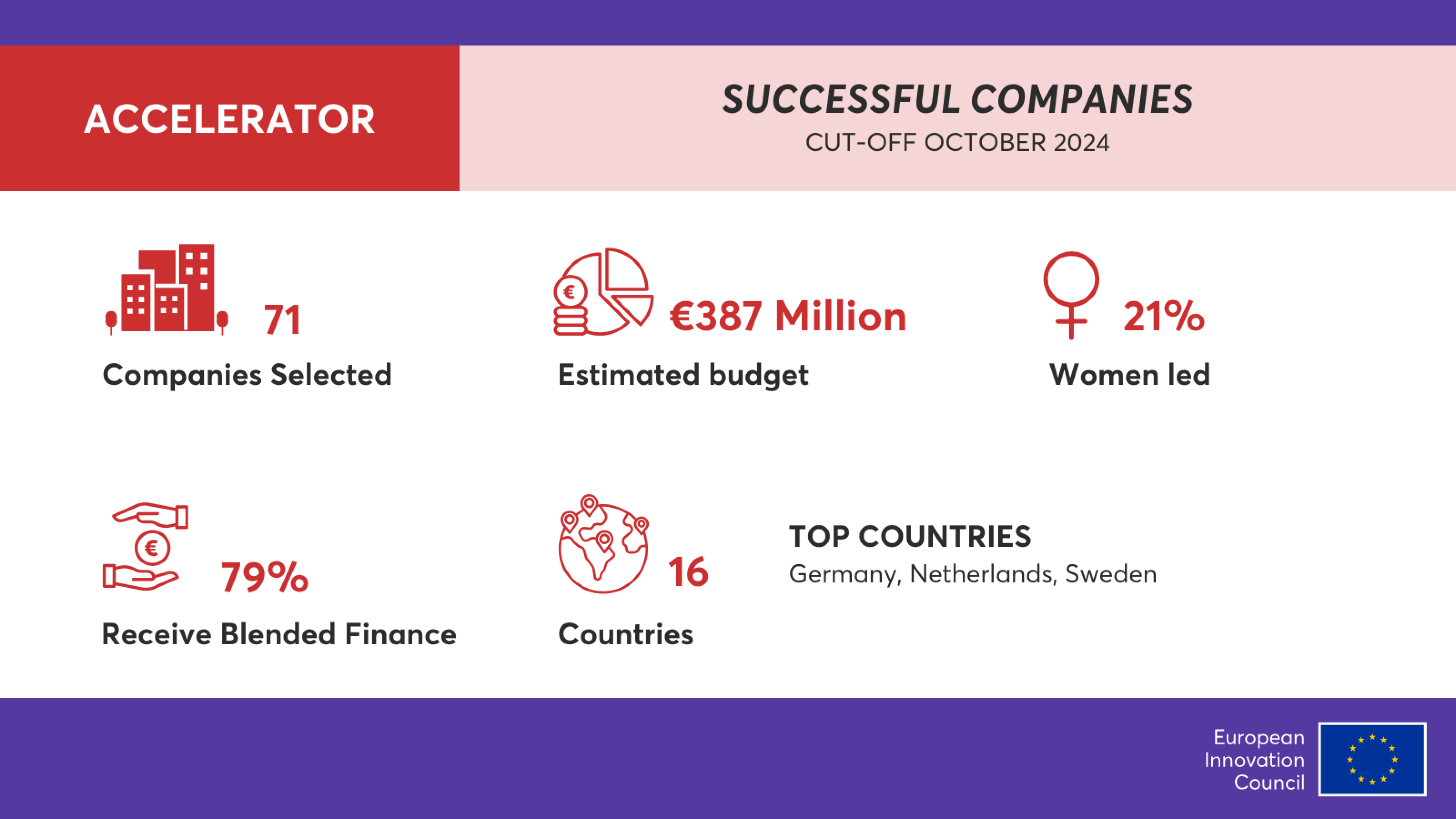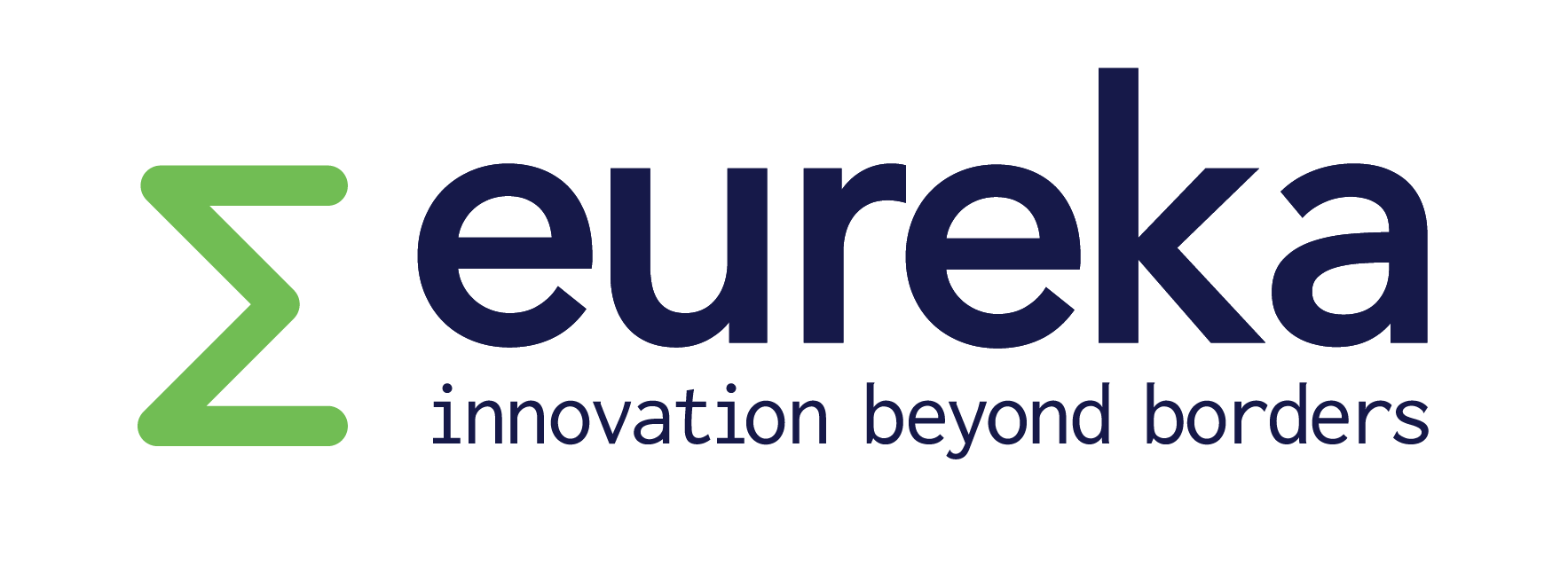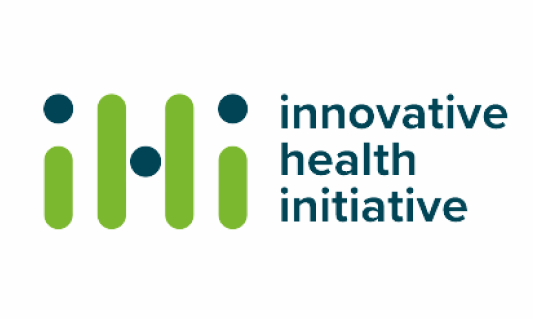Horizon Europe 2025 Work Programme Announced
Driving Europe's Innovation Ambition
The European Commission (EC) has officially launched the Horizon Europe 2025 Work Programme, a major milestone in the EU’s €95.5 billion flagship research and innovation initiative. Covering a critical year within the 2025–2027 strategic cycle, this Work Programme defines Europe's science and innovation priorities, setting a clear path towards tackling global challenges, accelerating the green and digital transitions, and securing Europe's position as a global leader in innovation.
This new Work Programme builds directly upon the Horizon Europe Strategic Plan 2025–2027, which set three overarching strategic orientations: a green transition, a digital transition, and a more resilient, competitive, inclusive, and democratic Europe.
Strategic Priorities for 2025
The 2025 Work Programme supports three interconnected priorities:
1. Green Transition:
o Accelerating progress towards climate neutrality and sustainability.
o Protecting biodiversity and promoting circular economy practices.
2. Digital Transition:
o Strengthening Europe's digital sovereignty and advancing artificial intelligence, quantum technologies, cybersecurity, and next-generation computing.
3. Resilient and Inclusive Society:
o Building economic competitiveness, safeguarding democratic institutions, and promoting inclusivity and social resilience.
This programme focuses on open strategic autonomy and aims to strengthen Europe's technological and industrial leadership, while ensuring that the transitions are socially fair and inclusive.
Funding Overview
In 2025, over €7.2 billion will be invested across Horizon Europe's pillars and thematic clusters. The funding distribution reflects the EU’s commitment to scientific excellence, global competitiveness, and societal impact.
The programme is structured around Horizon Europe's three pillars:
• Pillar I: Excellent Science
o Supports frontier research via the European Research Council (ERC) and the Marie Skłodowska-Curie Actions (MSCA) for researcher mobility and training.
o Strengthens world-class research infrastructures critical for advanced science.
• Pillar II: Global Challenges and European Industrial Competitiveness
o Funds research under six thematic clusters:
- Health
- Culture, Creativity, and Inclusive Society
- Civil Security for Society
- Digital, Industry, and Space
- Climate, Energy, and Mobility
- Food, Bioeconomy, Natural Resources, Agriculture, and Environment
- Encourages cross-sector collaboration to tackle complex societal challenges.
• Pillar III: Innovative Europe
o Advances innovation ecosystems, notably through the European Innovation Council (EIC), supporting breakthrough technologies and high-potential companies.
o Strengthens the European Institute of Innovation and Technology (EIT) and regional innovation hubs.
Beyond the three pillars, the programme also includes actions to widen participation and strengthen the European Research Area (ERA), ensuring all member states benefit from scientific progress and innovation.
Green and Climate Focus
In line with the European Green Deal, the 2025 Work Programme reinforces Europe's leadership in environmental innovation:
• 35% of Horizon Europe's total budget is earmarked for climate-related activities.
• A new and notable commitment is that at least 10% of the Horizon Europe budget will now be dedicated specifically to biodiversity-related research.
Topics will address renewable energy systems, zero-emission mobility, climate adaptation, sustainable food systems, and restoration of ecosystems, helping Europe meet its 2030 climate and biodiversity targets.
European Innovation Council 2025 Actions
The European Innovation Council (EIC) plays a pivotal role in the 2025 Work Programme, with over €1.4 billion in funding to accelerate deep tech innovation.
The EIC's three major funding instruments are:
• EIC Pathfinder: Supports early-stage, high-risk research into revolutionary technologies.
• EIC Transition: Bridges the gap between research and market by funding proof-of-concept and prototype development.
• EIC Accelerator: Provides grants and blended finance (grants plus equity investment) to scale up start-ups and SMEs, especially in strategic areas such as health, digital, and clean tech.
The EIC continues to position Europe at the forefront of deep tech entrepreneurship, driving the next generation of global technology champions.
Widening Participation and Strengthening the ERA
The 2025 programme places strong emphasis on inclusivity and geographic balance across Europe. Actions under the Widening Participation and Strengthening the ERA section aim to:
• Boost the research and innovation capacity of less-performing countries (often referred to as “Widening countries”).
• Promote brain circulation and reduce the R&D divide across regions.
• Strengthen gender equality, open science practices, and citizen engagement in research activities.
By creating more equitable opportunities for participation, the EU ensures that excellence is fostered across all regions, not just in traditional innovation hubs.
International Collaboration
Recognising that global challenges require global solutions; the 2025 Work Programme maintains a strong emphasis on international cooperation.
Key initiatives include:
• Targeted collaboration with strategic partner countries and regions, notably Africa, the Western Balkans, and Latin America.
• Specific calls for cooperation in areas like global health, climate action, and resilient food systems.
The EU continues to position Horizon Europe as an open platform for global scientific collaboration, while safeguarding Europe's strategic interests and ethical standards.
Stakeholder Consultation and Co-Design Approach
In shaping the 2025 Work Programme, the EC engaged extensively with stakeholders through a consultation process between April and May 2024. Researchers, industry leaders, policymakers, and civil society representatives contributed feedback, ensuring that the programme reflects the needs, expectations, and expertise of Europe's innovation community.
This co-design approach ensures greater relevance, transparency, and impact across funded projects.
For more information about the Horizon Europe work programmes, click here.
£5m Funding Available to Advance UK Semiconductor Capabilities
Innovate UK has launched the "Developing Semiconductor Hardware for Critical Technologies" competition, offering up to £5 million to support feasibility studies that explore innovative advancements in semiconductor hardware design and manufacturing. This initiative is a strategic move to enhance the UK's position in critical technology areas by fostering domestic capabilities in semiconductor development.
Strategic Importance
This funding opportunity aligns with the UK's broader strategy to enhance its capabilities in critical technologies, including semiconductors. By investing in feasibility studies that explore innovative hardware design and manufacturing processes, the UK aims to strengthen its position in the global semiconductor market, foster economic growth, and ensure technological sovereignty.
A recent report by Perspective Economics highlights the UK's semiconductor sector, which includes over 200 companies in research, design, and manufacturing that generated £9.6 billion in revenues in 2022. This represents approximately 2% of global semiconductor revenues.
Competition Overview
The primary objective of this competition is to encourage UK-based businesses to investigate the feasibility of novel ideas that could lead to significant advancements in semiconductor hardware. These studies should focus on innovations that have the potential to improve the design and fabrication processes within the UK, thereby contributing to the nation's competitiveness in critical technologies.
Scope and Focus Areas
The competition seeks projects that explore the feasibility of advancements in semiconductor hardware design or fabrication with the potential to impact UK businesses operating in critical technology areas. Specific themes of interest include:
- Novel semiconductor materials or designs
- Semiconductor fabrication techniques
- Manufacturing equipment innovation
- Multi-technology integration or interfacing
- Novel packaging materials and techniques
- Advanced packaging
- Thermal management
- Front-end of line processes
- Back-end of line processes
- In-line and end-of-line testing
- Development of Process Design Kits (PDKs)
Projects focusing on the design or fabrication of printed circuit boards (PCBs) or the assembly of end-use systems are not eligible for funding under this competition.
Key Details
Key details of the competition include:
- Funding Allocation: Up to £5 million in total funding is available.
- Project Duration: Projects must last up to six months.
- Project Start and End Dates: Projects should start by 1st September 2025 and end by 28th February 2026.
- Funding Range per Project: Eligible grant funding requests must be between £75,000 and £300,000.
The competition is designed to support feasibility studies that assess both the technical and commercial viability of proposed innovations. Applicants are expected to identify potential barriers to market adoption and explore opportunities for their technologies within the UK's semiconductor landscape.
Eligibility Criteria
To participate in the competition, applicants must meet specific eligibility requirements:
- Lead Organisation: Must be a UK-registered business of any size.
- SME Involvement: The project must involve at least one grant-claiming micro, small, or medium-sized enterprise (SME).
- Project Work: All funded project work must be carried out in the UK.
- Exploitation of Results: The results of the project should be intended for exploitation within the UK.
Collaborative projects are encouraged and can include UK-registered businesses, academic institutions, charities, not-for-profit organisations, public sector organisations, and research and technology organisations (RTOs). Each partner organisation must be invited into the Innovation Funding Service (IFS) by the lead to collaborate on a project. Once partners have accepted the invitation, they will be asked to log in or create an account in IFS. They are responsible for entering their own project costs and completing their Project Impact questions in the application.
Funding Details
The competition offers grant funding to cover a portion of eligible project costs, with the percentage varying based on the size of the organisation:
- Micro or Small Organisations: Up to 70% of eligible project costs.
- Medium-sized Organisations: Up to 60% of eligible project costs.
- Large Organisations: Up to 50% of eligible project costs.
Research organisations undertaking non-economic activity as part of the project can share up to 30% of the total eligible project costs. Funding for these organisations is available at 100% of eligible costs for RTOs, charities, not-for-profit organisations, public sector organisations, or research organisations, and at 80% of full economic costs (FEC) for Je-S registered institutions such as academic institutions.
Application Process and Key Dates
Applicants must submit their proposals through the Innovation Funding Service portal. The application process involves providing detailed information about the project, including objectives, methodology, expected outcomes, and budget. Key dates for the competition are:
- Competition Opens: Monday, 14th April 2025
- Online Briefing Event: Wednesday, 16th April 2025 at 2:00pm
- Competition Closes: Thursday, 29th May 2025 at 11:00am
- Applicants Notified: Monday, 30th June 2025
- Project Start Date: Monday, 1st September 2025
Applicants are encouraged to attend the online briefing event to gain insights into the competition's objectives and application process. Briefing slides will be available for download from the Supporting Information section after the event.
For a free consultation to discuss your project idea, contact RedKnight today.
Empowering UK Farmers: Funding for On-Farm Innovation
In April 2025, UK Research and Innovation (UKRI) launched the ADOPT funding initiative under its Farming Innovation Programme. This scheme is designed to support farmer-led, on-farm trials that aim to generate, test, and demonstrate innovative solutions to agricultural challenges. The goal is to provide practical knowledge of new approaches, encouraging widespread adoption across the sector.
Two-Tiered Grant System
ADOPT offers two types of grants to cater to different applicant needs:
- Support Grant: This grant provides access to professional assistance from industry experts to help develop a Full ADOPT Grant application. It's particularly beneficial for those less familiar with Innovate UK's systems.
- Full ADOPT Grant: This grant supports collaborative, farmer-led on-farm trials or experiments.
Applicants can choose to apply directly for the Full ADOPT Grant or start with the Support Grant to refine their proposals.
Comprehensive Support for Applicants
To assist applicants, ADOPT has established a Project Facilitator Database through Innovate UK Business Connect. This resource connects applicants with industry experts who can guide them through the application process and help turn ideas into viable funding proposals. Interested individuals can register as facilitators or request a list of registered facilitators for their project ideas.
Additionally, the ADOPT Support Hub, managed by RSK ADAS, serves as the first point of contact for applicants. The Support Hub offers advice on project scope, suitability, and practicalities of on-farm trials. They also assist in forming connections with necessary expertise and partners, promote best practices for on-farm research and development, and facilitate knowledge exchange from funded projects to the broader farming community.
Driving Innovation in Agriculture
The ADOPT initiative represents a significant opportunity for UK farmers, growers, and foresters to lead innovation in agriculture. By supporting practical, on-farm research and fostering collaboration, ADOPT aims to develop solutions that address real-world challenges and promote sustainable farming practices.
For more information and to apply, contact RedKnight today.
Innovative Rail Solutions: FOAK 2025 Funding Opportunities
Innovate UK, in partnership with the Department for Transport (DfT), has launched the First of a Kind (FOAK) 2025 competition series under the Contracts for Innovation programme. This initiative aims to accelerate the adoption of innovative solutions within the UK rail industry by addressing critical challenges through targeted funding opportunities. The FOAK 2025 competitions focus on four key themes: Platform Train Interfaces, Personal Safety, Bridge Strikes, and Artificial Intelligence (AI) for Complex Processes. Organisations are invited to apply for a share of up to £4.7 million, inclusive of VAT, to develop prototypes, conduct field testing, and demonstrate their solutions.
Overview of the FOAK 2025 Competitions
The FOAK Programme is designed to foster collaboration between the government and the rail industry, facilitating the integration of high-maturity innovations into the railway system. By focusing on specific themes, the programme aims to address pressing industry challenges and support suppliers in achieving market readiness.
Each competition theme targets a distinct aspect of railway operations, encouraging applicants to propose solutions that can be seamlessly integrated into existing systems. Projects are expected to start by 1st September 2025 and conclude by 31st March 2026, with durations ranging from three to seven months. The maximum allowable project cost is £200,000, inclusive of VAT.
Competition Themes
1. Platform Train Interface (PTI)
The PTI theme seeks innovative solutions to enhance the interface between train station platforms and trains, focusing on accessibility, safety, and efficiency. Challenges at the PTI are significant, with the Rail Safety and Standards Board (RSSB) reporting that incidents in this area account for nearly half of all passenger fatality risks on the mainline railway. Additionally, over one million mobility-related assists involving the PTI were recorded in 2023, highlighting the need for improved solutions.
Applicants are encouraged to develop solutions that are low-cost, minimally disruptive to install, interoperable between different stations and trains, and easy to operate by staff or customers. The goal is to improve the overall process and experience of accessible boarding while maintaining current dwell times.
2. Personal Safety
The Personal Safety theme addresses the need for innovative solutions to enhance the safety of passengers and staff within the railway environment. While specific details are not provided in the available sources, it is understood that this theme focuses on developing technologies and strategies to mitigate risks and improve the overall safety experience in stations, on trains, and in other railway facilities.
3. Bridge Strikes
Bridge strikes, incidents where vehicles collide with railway bridges, pose significant safety risks and operational disruptions. The Bridge Strikes theme seeks solutions to prevent such incidents and mitigate their impact on the railway network. Innovations may include detection systems, warning mechanisms, or structural modifications designed to reduce the frequency and severity of bridge strikes.
4. AI for Complex Processes
The AI for Complex Processes theme focuses on leveraging artificial intelligence to optimize and manage intricate railway operations. This includes applications such as predictive maintenance, scheduling, resource allocation, and other areas where AI can enhance efficiency and decision-making. Solutions should demonstrate the potential to integrate into existing systems and deliver measurable improvements in performance.
Eligibility and Application Process
To be eligible for the FOAK 2025 competitions, projects must:
- Start by 1st September 2025 and end by 31st March 2026.
- Last between three to seven months.
- Have total costs of no more than £200,000, inclusive of VAT.
Applicants can be organisations of any size and may work alone or with subcontracted skills and expertise from businesses, research organisations, or third-sector groups. Proposals must demonstrate a high maturity level, at Rail Industry Readiness Level (RIRL) 5 or above, indicating readiness for integration into an operational railway environment.
The application process involves detailing how the solution aligns with the chosen theme, the plan for prototype development and testing, and the anticipated benefits to railway stakeholders and customers. A key deliverable is a demonstration event and trial in a representative environment, allowing for effective evaluation and feedback from potential customers and industry representatives.
Funding and Support
The FOAK 2025 competitions offer a total funding budget of up to £4.7 million across the four themes. This funding is provided through procurement contracts, with projects expected to focus on research and development activities, including solution exploration, design, prototyping, and field-testing. Contracts for Innovation competitions involve procurement of R&D services at fair market value and are not subject to subsidy control criteria that typically apply to grant funding.
Innovate UK and the DfT encourage applications from diverse backgrounds and are committed to making the application process accessible to everyone. Support is available for applicants who have a disability or long-term condition and face barriers in applying.
Next Steps
For a free consultation to discuss your project idea, contact RedKnight today.
Energy Catalyst: Funding Clean Energy Solutions for Global Impact
Innovate UK has announced the launch of Energy Catalyst Round 11, a funding initiative aimed at accelerating innovations to improve clean energy access in sub-Saharan Africa, South Asia, and the Indo-Pacific regions. This round is divided into two distinct strands: Early-stage and Mid-stage, each tailored to support projects at different levels of development. Up to £4.5 million is allocated across both stages.
Energy Catalyst Round 11: Early-stage
The Early-stage competition is designed for UK-registered organisations seeking to develop nascent ideas that can transform energy access in the target regions. Projects should focus on creating affordable, reliable, and low-carbon technologies or business models. Key details include:
- Project Costs: Eligible project costs must range between £50,000 and £300,000.
- Project Duration: Projects should commence by 1st September 2025 and conclude by 31st August 2026, lasting between 6 to 12 months.
- Eligibility Criteria: Applicants must be UK-registered organisations aiming to improve energy access in Official Development Assistance (ODA) eligible countries within the specified regions. The proposed solutions should integrate considerations of gender equality, disability, and social inclusion, aligning with Sustainable Development Goals 7 (Affordable and Clean Energy) and 13 (Climate Action).
Energy Catalyst Round 11: Mid-stage
The Mid-stage competition caters to UK-registered organisations with more developed projects that are ready to progress towards implementation. Similar to the Early-stage, projects must aim to enhance clean energy access in the target regions. Key aspects include:
- Project Costs: Eligible project costs should be between £50,000 and £1.5 million.
- Project Duration: Projects are expected to start by 1st September 2025 and end by 31st March 2027, with durations ranging from 6 to 19 months.
- Eligibility Criteria: Applicants must be UK-registered organisations focusing on delivering innovations for clean energy access in ODA-eligible countries within sub-Saharan Africa, South Asia, or the Indo-Pacific regions. Projects should ensure a just and inclusive energy transition by integrating gender equality, disability, and social inclusion considerations.
Application Process and Deadlines
Both competitions are scheduled to open on Wednesday, 12th March 2025, and will close at 11am on Wednesday, 30th April 2025. Prospective applicants are advised to carefully review the specific eligibility criteria and scope for each strand to ensure their proposals align with the competition requirements. Applications must be submitted through the Innovation Funding Service portal before the stated deadline.
Strategic Importance of Energy Catalyst Round 11
The Energy Catalyst programme plays a pivotal role in addressing the global challenge of energy access. By focusing on sub-Saharan Africa, South Asia, and the Indo-Pacific regions, Innovate UK aims to stimulate the development of innovative solutions that can provide sustainable energy to underserved communities. This initiative not only seeks to improve the quality of life in these regions but also contributes to global efforts in combating climate change by promoting low-carbon technologies.
Integration of Inclusivity in Energy Solutions
A notable emphasis in Round 11 is the integration of gender equality, disability, and social inclusion (GEDSI) within energy projects. Applicants are encouraged to design solutions that are inclusive, ensuring that the benefits of clean energy reach all segments of society, particularly the marginalised and vulnerable groups. This approach aligns with the broader objectives of the Sustainable Development Goals, fostering equitable and sustainable development.
Next Steps
For a free consultation to discuss your project idea in more detail, contact RedKnight today.
EIC Accelerator (Oct '24 Cut-Off) Results Announced
The European Innovation Council (EIC) Accelerator programmes provides up to €2.5m of grant funding and up to of €15m of equity to support innovative start-ups and small to medium-sized enterprises (SMEs) developing groundbreaking technologies and solutions which are at Technology Readiness Level 6 or above.
Overview of the February 2025 Funding Round
In the latest funding round (results announced in February 2025), the EIC Accelerator received a record-breaking 1,211 full applications from start-ups and SMEs for the 3rd October 2024, cut-off. Of these applications, 431 were invited to jury interviews, with 71 companies selected for funding. This selection translates to an overall success rate of approximately 5.9% from Step 2 to the final selection, highlighting the rigorous and competitive nature of the process.
The total funding allocated in this round amounts to €387 million, with an average of €5.45 million per company. The funding types awarded were as follows:
- Blended Finance (Grant + Equity): 56 companies (78.9%)
- Equity-Only: 5 companies (7.0%)
- Grant-Only: 10 companies (14.1%)
The significant emphasis on blended finance indicates the EIC's strategy to combine immediate financial support with long-term investment, ensuring sustained growth and scalability for the selected companies.
Geographical Distribution and UK Participation
The 71 selected companies represent a diverse geographical spread, spanning 16 countries. The top-performing countries in this round include Germany (15 companies), the Netherlands (11 companies), and Sweden (7 companies). Notably, the UK had 5 companies selected, accounting for 7% of the total.
This representation is particularly significant for UK-based entities. Despite the challenges posed by the UK's departure from the European Union, the EIC Accelerator remains accessible to UK applicants, albeit with certain limitations. UK companies are eligible to apply for the "grant-only" scheme, excluding them from equity-based funding components. This adjustment necessitates a strategic approach for UK applicants, focusing on maximizing the potential of grant funding to drive innovation and growth.
Success Rates and Application Process
The EIC Accelerator's selection process is highly competitive, with success rates reflecting the program's rigorous standards:
- Step 2 Success Rate: 36%
- Step 3 Success Rate: 16%
- Overall Success Rate (from Step 2 to Final Selection): 5.9%
These statistics indicate that while the journey from application to selection is challenging, a significant proportion of applicants who advance to Step 2 have a viable chance of securing funding. Understanding and navigating this process effectively is crucial to enhancing their prospects.
Why UK Entities Should Consider Applying
- Access to Substantial Funding: The EIC Accelerator offers grants of up to €2.5 million, providing substantial financial support to propel innovative projects. For UK companies, securing such funding can be transformative, enabling the development and scaling of cutting-edge solutions.
- Recognition and Credibility: Being selected by the EIC Accelerator not only provides financial backing but also serves as a mark of excellence and credibility. This recognition can open doors to additional funding opportunities, partnerships, and market expansion.
- Business Acceleration Services: Beyond funding, the EIC offers Business Acceleration Services, granting access to expertise, corporate partners, investors, and innovation ecosystems. These resources are invaluable for companies aiming to scale and penetrate new markets.
- Encouragement of Female Leadership: The EIC actively promotes diversity, with 21% of the selected companies in this round being led by women (as CEO, CSO, or CTO). UK companies with female leadership are particularly encouraged to apply, aligning with the EIC's commitment to fostering inclusive innovation.
Considerations for UK Applicants
While the "grant-only" limitation requires UK applicants to forgo equity funding, this constraint can be strategically navigated:
- Leveraging National Resources: UK companies can complement EIC grant funding with national programs and private investments. This blended approach can offset the absence of EIC equity funding, ensuring comprehensive financial support.
- Building Strong Consortia: Collaborating with entities from EU member states can enhance the project's value proposition and align it more closely with EIC priorities, potentially increasing the chances of success.
- Emphasizing EU Market Integration: Demonstrating a clear strategy for integrating and scaling within the EU market can make applications more compelling, showcasing the potential for broader European impact.
Strategic Areas of Focus
The EIC Accelerator is dedicated to supporting innovative startups and SMEs across a wide array of sectors. While the program is open to all fields of technology, it places a particular emphasis on strategic areas that align with broader EU policies and address pressing societal challenges:
Health and Biotechnology:
- Medical Technologies: Development of advanced medical devices, diagnostics, and therapeutic solutions.
- Biopharmaceuticals: Innovations in drug discovery, vaccine development, and personalised medicine.
- Biotechnology Applications: Projects focusing on bioproducts, biofuels, and bioremediation.
Energy and Environment:
- Renewable Energy Solutions: Technologies harnessing solar, wind, hydro, and other renewable sources.
- Energy Storage and Efficiency: Innovations in batteries, supercapacitors, and energy management systems.
- Environmental Protection: Projects aimed at pollution reduction, waste management, and circular economy initiatives.
Digital and Deep Tech:
- Artificial Intelligence (AI): Development of AI-driven applications across various industries.
- Quantum Computing: Advancements in quantum technologies for computing and communication.
- Cybersecurity: Innovations ensuring data protection and network security.
Advanced Materials and Manufacturing:
- Nanomaterials: Creation of materials with novel properties for industrial applications.
- Smart Manufacturing: Integration of IoT and automation in production processes.
- Construction Technologies: Innovations in building materials and sustainable construction practices.
Agriculture and Food:
- Sustainable Farming: Technologies promoting precision agriculture and resource-efficient farming.
- Food Biotechnology: Development of alternative proteins and food products with reduced environmental impact.
- Aquaculture: Innovations in sustainable fish farming and aquatic ecosystem management.
Space and Mobility:
- Satellite Technologies: Development of components and systems for space exploration and communication.
- Advanced Mobility Solutions: Innovations in electric vehicles, autonomous transportation, and smart logistics.
- Aerospace Engineering: Projects focusing on aircraft design, propulsion systems, and air traffic management.
Eureka's 7 Innovation Programmes for UK Businesses
Eureka is an intergovernmental network established to enhance international cooperation in research and development (R&D) across various sectors. For small and medium sized enterprises (SMEs) in the United Kingdom, Eureka offers seven distinct programmes designed to foster innovation, collaboration, and market expansion. These programmes provide UK organisations with opportunities to engage in international R&D projects, access funding, and connect with global partners.
Eurostars is Eureka's flagship programme aimed at supporting innovative SMEs engaged in R&D activities. The programme facilitates international collaboration by funding transnational projects led by R&D-performing SMEs. To be eligible, a consortium must include at least two independent entities from two different participating countries, with the project led by an innovative SME from a Eurostars country. The project should focus on developing a product, process, or service intended for commercialisation within 36 months. UK participants can receive national funding through Innovate UK, and partners will receive funding through their respective national agencies. Other eligibility criteria can be found here.
Eureka Clusters are industry-driven, strategic initiatives that focus on developing technologies crucial for European competitiveness. These long-term programmes involve large companies, SMEs, universities, and research organisations collaborating on R&D projects. Clusters cover various sectors, including information and communication technologies (ICT), energy, and biotechnology. For UK entities, participating in Clusters offers access to a vast network of international partners and potential funding opportunities. The 5 on-going Clusters include CELTIC-NEXT (telecommunications), ITEA (software innovation), and EUROGIA (low-carbon energy technologies), SMART (Advanced manufacturing), and Xecs (Electronics Components and Systems and applications).
Network Projects provide a flexible framework for organisations to collaborate on international R&D initiatives across any technological area. There are no predefined themes, allowing participants to propose projects that align with their strategic interests. UK organisations can initiate or join consortia with partners from Eureka member countries to develop innovative products, processes, or services. Funding and support are accessible through Innovate UK, facilitating the growth and competitiveness of UK businesses in the global market.
Globalstars is a programme that extends Eureka's collaborative framework beyond its member countries by launching calls for projects with specific non-Eureka countries. These targeted calls aim to foster international R&D cooperation and open new markets for participants. UK entities can engage in Globalstars calls to collaborate with partners in countries such as Brazil, India, Japan, and Singapore. This programme provides opportunities to access new technologies, expertise, and funding sources, enhancing the global reach of UK innovations.
Innowwide is designed to support innovative SMEs in assessing the viability of their research or commercial ambitions in international markets. The programme offers grants of €60,000 to conduct Viability Assessment Projects (VAPs), which help SMEs understand market needs, local conditions, and potential barriers in target countries. For UK SMEs, Innowwide provides a pathway to explore and prepare for successful market entry and collaboration in diverse global regions.
The Investment Readiness programme connects startups and SMEs with corporate venturing teams and investors. Participants can engage in international missions and corporate activities designed to enhance their investment appeal and facilitate growth. For UK entities, this programme offers opportunities to pitch to potential investors, receive mentorship, and gain insights into scaling businesses internationally. By participating, UK companies can improve their readiness to attract investment and expand their operations in global markets.
The Fast Track to the European Innovation Council (EIC) Accelerator is a programme that allows innovative SMEs to skip the first step of the EIC Accelerator application process. Participants benefit from expert feedback on their project ideas and have the opportunity to practice live pitches. This streamlined approach accelerates access to substantial EU funding and support. For UK SMEs, participating in this programme can expedite the development and scaling of high-impact innovations, providing a competitive edge in the European market.
For more information on any of the above, or to discuss your project idea, contact RedKnight today.
IHI launches €191m applicant-driven call for proposals
On 16th January 2025, the Innovative Health Initiative (IHI) unveiled two significant funding opportunities: IHI Call 9 and IHI Call 10. Collectively, these calls represent a substantial investment in health research and innovation, with a combined budget of approximately €261 million. This funding is sourced from Horizon Europe, the European Union's research and innovation program, and is matched by contributions from Europe's health industries.
IHI Call 9: Embracing an Applicant-Driven Approach
IHI Call 9 introduces a novel, applicant-driven model, marking a departure from previous IHI calls where specific challenges were predefined. In this call, applicants are invited to explore the IHI Strategic Research and Innovation Agenda (SRIA) to identify opportunities and develop proposals that align with its objectives. This approach empowers researchers and innovators to propose projects that address unmet public health needs through large-scale, cross-sector public-private partnerships. Proposals should clearly articulate their anticipated impacts on society, the economy, and science, while adhering to IHI's pre-competitive framework.
Niklas Blomberg, IHI's Executive Director, emphasised the transformative potential of this approach:
“With IHI Call 9, we are really pioneering a novel, more open way of identifying high-impact projects. We expect that this applicant-led approach will deliver transformative projects exploring areas of health research that we haven't looked at so far, and bring in organisations that are not yet part of our community.”
The total investment for Call 9 is €191 million. As a single-stage call, applicants must collaborate with appropriate industry partners to ensure that half of their project's costs are covered by in-kind contributions from IHI's industry members and, if applicable, IHI contributing partners.
IHI Call 10: Targeted Topics in Health Innovation
Concurrently, IHI launched Call 10, a two-stage call for proposals focusing on three critical areas:
- Reducing PFAS in the Health Sector
Per- and poly-fluoroalkyl substances (PFAS) are synthetic chemicals integral to various healthcare products, including medicines, medical devices, packaging, and cleaning agents. However, due to their persistence in the environment and potential health risks, there is a growing need to minimise their use. This topic aims to investigate viable alternatives to PFAS and, where replacement isn't feasible, explore strategies to reduce exposure and emissions while maintaining product quality and safety.
- Advancing the European Health Data Space (EHDS)
The EHDS initiative seeks to unlock the potential of safe and secure exchange, use, and reuse of health data within the EU. This topic focuses on developing frameworks, recommendations, and tools to support the EHDS's implementation, particularly concerning the reuse of data for research purposes. The goal is to build trust among stakeholders and create a secure, collaborative ecosystem that optimizes data use and facilitates research advancements while protecting intellectual property.
- Implementing Digital Labels for Medical Devices
As medical devices become more compact, the amount of information required on printed labels has increased, often leading to user difficulties in accessing and reading essential details. This topic aims to establish a digital labeling concept applicable to all types and classes of medical and in vitro devices. By enabling users to access up-to-date, targeted information via digital means, such as scanning a QR code, this initiative seeks to enhance user experience and reduce the environmental impact associated with extensive printed materials.
The total budget allocated for the three topics under IHI Call 10 is nearly €70 million, equally funded by Horizon Europe and contributions from IHI industry members and contributing partners.
Application Process and Deadlines
For IHI Call 9, being a single-stage call, applicants are required to submit full proposals by 29th April 2025. In contrast, IHI Call 10 follows a two-stage process, with short proposals due by 23rd April 2025. Detailed information on application procedures, eligibility criteria, and evaluation processes can be found on the IHI website.
About the Innovative Health Initiative (IHI)
The IHI is a public-private partnership between the European Union and European industry associations representing the pharmaceutical, medical technology, biotechnology, digital health, and vaccine sectors. Its mission is to translate health research and innovation into tangible benefits for patients and society, ensuring that Europe remains at the forefront of interdisciplinary, sustainable, patient-centric health research. By supporting projects that foster collaboration across diverse sectors, IHI aims to pave the way for a more integrated approach to healthcare, encompassing prevention, diagnosis, treatment, and disease management.
These new calls underscore IHI's commitment to fostering innovation in health research by encouraging collaborative efforts that address pressing public health challenges and leverage the strengths of both public and private sectors.
Innovation Loans: Fueling Future Growth
Innovate UK has announced the launch of its Innovation Loans Future Economy Competition: Round 19, offering up to £25 million in loans to UK-registered micro, small, and medium-sized enterprises (SMEs). This initiative aims to support highly innovative late-stage research and development (R&D) projects that demonstrate strong commercial potential and the capacity to significantly benefit the UK economy.
Key Details of the Competition
- Loan Amounts: Businesses can apply for loans ranging from £100,000 to £2 million to cover eligible project costs.
- Project Duration: Projects may last up to five years, encompassing both the R&D and commercialisation phases. Successful applicants are expected to commence their projects by 1st July 2025.
- Application Timeline: The competition opened on 9th January 2025 and will close on 5th March 2025 at 11:00 am. Subsequent rounds are planned, with Round 20 opening on 6 March 2025 and closing on 7 May 2025.
Eligibility Criteria
To be eligible for the innovation loan, applicants must:
- Business Status: Be a UK-registered SME.
- Project Scope: Propose a project that leads to innovative new products, processes, or services significantly ahead of current market offerings, or present an innovative application of existing products, processes, or services. Projects can also involve new or innovative business models. The focus should align with one or more of the future economy areas outlined in the Innovate UK plan for action.
- Financial Justification: Demonstrate a clear need for public funding, the ability to cover interest payments, and the capacity to repay the loan on time.
Application Process
Applicants are required to submit a comprehensive proposal detailing the business need, technological challenge, or market opportunity their innovation addresses. The proposal should include:
- Project Motivation: Clearly articulate the main motivation for the project, including the business need, technological challenge, or market opportunity it responds to.
- Innovation and Market Differentiation: Describe how the project will lead to products, processes, or services that are significantly ahead of others currently available, including an understanding of the current state of the art and how the innovation will differentiate from competitors.
- Commercialisation Strategy: Outline the route to market, target customers or end-users, and how the innovation will lead to commercial success, including increased revenues or cost reductions.
- Project Management and Risk Mitigation: Provide a detailed project plan, including work packages, milestones, and a risk register identifying main risks and uncertainties, along with mitigation strategies.
Applicants must also complete a business and financial submission, including historic and forecast financial statements, to support their suitability to borrow. This includes profit and loss accounts, balance sheets, and cash flow forecasts covering the full loan term.
Assessment and Evaluation
Applications will be evaluated based on the quality of the project and the suitability of the business to receive a loan. The assessment process includes:
- Project Proposal Assessment: Independent assessors will score each question in the project proposal, focusing on aspects such as innovation, market opportunity, project management, and value for money.
- Initial Credit Evaluation: Innovate UK's Credit team will conduct an initial evaluation of the business's financial standing and ability to repay the loan.
- Progress Panel: A panel will review the innovation score and credit evaluation to decide on progression to detailed credit evaluation.
- Detailed Credit Evaluation: A thorough analysis of the business's financials, including a management presentation to the Credit Committee, may be required.
The final lending decision rests with the Credit Committee, which may include specific conditions. Feedback will be provided to all applicants, whether successful or unsuccessful.
Support and Resources
Innovate UK offers various resources to assist applicants, including recorded webinars on application guidance and financial submission. Applicants are encouraged to prepare well in advance, seek financial and legal advice, and ensure all parts of the application are completed accurately and submitted on time.
For more information on the competition process, contact RedKnight today.
UK Innovation Funding Trends for 2025
The UK innovation funding landscape in 2025 promises to be a dynamic and exciting environment, shaped by significant public and private investments. As the UK government continues to prioritise research and development (R&D) to drive economic growth, enhance sustainability, and bolster technological advancement, innovators across various sectors can expect a range of opportunities to secure critical funding.
Strategic Focus Areas for 2025
In its strategic delivery plan, Innovate UK has identified three primary domains for funding in 2025: Net Zero Innovation, Healthy Living and Agriculture, and Digital & Emerging Technologies. These areas are designed to address global challenges while positioning the UK as a leader in innovation.
- Net Zero Innovation
With over £1.2 billion committed to supporting innovations that contribute to achieving net-zero carbon emissions by 2050, the UK government is keen to accelerate the green transition. Key areas of focus include:
- Clean Energy Technologies: Investment in renewable energy sources such as wind, solar, and hydrogen is a top priority. Additionally, funding will support advancements in energy storage solutions to enhance grid reliability.
- Carbon Capture and Storage (CCS): Projects aimed at capturing and storing carbon emissions from industrial processes will receive significant support.
- Decarbonising Transportation: The government is investing heavily in electric vehicles (EVs), sustainable aviation fuels, and hydrogen-powered transport to reduce reliance on fossil fuels.
- Sustainable Construction: Funding will also target innovations that improve energy efficiency in buildings, including retrofitting older structures and developing smart city infrastructure powered by sustainable energy.
- Healthy Living and Agriculture
The Healthy Living and Agriculture domain focuses on improving public health, advancing agricultural practices, and ensuring food security. Key initiatives include:
- Medical Technologies and Pharmaceuticals: Funding is directed toward developing personalised medicine, advanced diagnostics, and treatments for chronic and infectious diseases.
- Digital Health Solutions: The integration of artificial intelligence (AI) and data analytics into healthcare systems is a critical area of investment, aimed at improving patient outcomes and reducing healthcare costs.
- Sustainable Agriculture: Projects that enhance crop yields, reduce environmental impacts, and promote sustainable farming practices will receive significant backing.
- Food Security: Innovations in climate-resilient crops, alternative proteins, and efficient water usage are crucial to addressing global food supply challenges.
- Digital & Emerging Technologies
Digital transformation is at the heart of the UK’s innovation strategy. To maintain global competitiveness, the government is prioritising investments in:
- Artificial Intelligence (AI): Responsible AI development and adoption across industries are key priorities. This includes funding for AI-driven solutions in healthcare, finance, and manufacturing.
- Quantum Computing: The UK aims to lead in quantum technologies, supporting projects that push the boundaries of computing power, cryptography, and materials science.
- Cybersecurity: Enhancing digital security and protecting critical infrastructure are vital to ensuring the integrity of the country’s digital economy.
- Advanced Manufacturing: Funding will support the adoption of Industry 4.0 technologies, including robotics, 3D printing, and the Internet of Things (IoT).
- Creative Industries: Recognising the potential of the creative sector, investments will focus on digital content creation, immersive media technologies, and gaming.
Major Funding Competitions and Opportunities
In addition to strategic focus areas, several major funding competitions are open or expected to open in 2025, providing opportunities for businesses and research organisations to secure essential financial support. Here are just a few examples of what’s available:
- Innovate UK Smart Grants
Total Funding: Up to £1 million
Eligibility: UK-registered businesses, including micro, small, and medium enterprises (SMEs), as well as research organisations working in collaboration with businesses.
Scope: The Smart Grants competition is designed to support game-changing and commercially viable R&D projects across any sector. Successful applications typically demonstrate a clear potential for significant economic impact, job creation, and technological advancement.
- Innovation Loans Future Economy Competition
Total Funding: Up to £2 million
Eligibility: UK-registered SMEs with late-stage R&D projects that have a clear route to market.
Loan Terms: Loans range from £100,000 to £2 million, with fixed interest rates and repayment periods of up to seven years.
Focus: This competition targets businesses that need financial support to bridge the gap between late stage R&D and commercial success. Eligible projects include those focused on scaling production, completing final testing, or obtaining regulatory approval.
- Innovate UK Biomedical Catalyst Competition
Total Funding: Up to £30 million
Eligibility: UK-registered SMEs and research organisations developing innovative solutions in the biomedical sector.
Focus: This competition supports the development of new healthcare technologies, with a particular emphasis on novel therapeutics, medical devices, and diagnostics.
- Collaborative R&D: Creative Catalyst
Total Funding: Up to £200,000
Eligibility: UK-registered SMEs in the creative industries, particularly those working on innovative digital content, immersive technologies, or tools for film, television, and gaming.
Scope: This competition aims to develop commercially viable products that enhance the UK’s creative sector. Collaborative projects involving multiple partners are encouraged.
- Knowledge Transfer Partnership (KTP): 2024 to 2025 Round 5
Total Funding: Up to £9 million
Eligibility: UK-registered academic institutions, research organisations, or Catapults collaborating with businesses.
Scope: KTPs aim to transfer knowledge from academia to industry, helping businesses innovate and grow. Projects typically involve hiring a graduate (KTP Associate) to work on a specific innovation project within the business.
- ATI Programme Strategic Batch
Eligibility: Open to UK-registered businesses and collaborations in aerospace research or technology development.
Focus: This programme supports projects aligned with the UK Aerospace Technology Strategy, aimed at enhancing the competitiveness of the civil aerospace sector.
Other than Innovate UK
Here are other available funding sources outside of Innovate UK:
- NIHR (National Institute for Health Research)
Total Funding: Varies by competition
Eligibility: Open to academic researchers, NHS organizations, charities, and businesses involved in healthcare innovation.
Scope: The NIHR offers a range of funding opportunities, including programs focused on applied health research, global health research, and infrastructure support. Key initiatives include the Health Technology Assessment (HTA) programme, Efficacy and Mechanism Evaluation (EME) programme, and Invention for Innovation (i4i) programme.
- Water Innovation Competitions
Funding: Part of a £300 million fund for 2025-2030
Eligibility: Water companies and their partners working on cross-sector collaborations to address challenges in the water industry.
Focus: Projects should aim to improve water efficiency, sustainability, and resilience.
- UK Games Fund
Funding: Part of a £5 million extension announced in 2023
Eligibility: UK-based independent game development companies
Focus: Supporting early-stage game development through prototype funding and talent development initiatives.
- Advanced Research and Invention Agency (ARIA) Funding Opportunities
Total Funding: £800 million over four years
Eligibility: Open to high-risk, high-reward projects from innovators across all sectors.
Scope: ARIA focuses on ambitious and potentially transformative projects that traditional funding bodies might consider too risky. The agency operates with a high level of autonomy and minimal bureaucracy, enabling it to fund breakthrough innovations quickly.
Focus: Supporting disruptive technologies and novel scientific discoveries that could lead to significant advancements in areas such as energy, healthcare, and advanced materials.
- Defence and Security Accelerator (DASA) Funding Opportunities
Total Funding: Varies by competition
Eligibility: Open to businesses, academics, and innovators working on defence and security solutions.
Scope: DASA runs multiple competitions throughout the year, seeking innovative solutions to complex defence and security challenges. Key areas include surveillance, AI for defence, autonomous systems, and cyber resilience.
Focus: Supporting projects that enhance the safety and effectiveness of the UK's armed forces and security services, with an emphasis on rapid development and deployment of cutting-edge technologies.
- Welsh Government's Smart FIS Programme
Total Funding: Up to £225,000
Eligibility: Open to Welsh SMEs and research organisations developing innovative solutions in priority sectors.
Scope: The Smart Flexible Innovation Support (Smart FIS) programme offers financial support for R&D projects with high commercial potential. The programme encourages collaborative projects and aims to enhance innovation capacity in Wales.
Focus: Supporting projects in sectors such as advanced manufacturing, energy, healthcare, and digital technologies, with a particular emphasis on boosting regional economic growth.
Emerging Trends in Innovation Funding
Several broader trends are shaping the UK’s innovation funding environment in 2025:
- Public-Private Partnerships: The government is increasingly leveraging public-private partnerships to maximise the impact of innovation funding, particularly in large-scale projects.
- Regulatory Innovation: The newly established Regulatory Innovation Office aims to streamline regulatory processes for emerging technologies, making it easier for innovators to bring products to market.
- Climate Finance: With a growing emphasis on green investment, initiatives like the National Wealth Fund and GB Energy are expected to play a crucial role in mobilising private capital for renewable energy projects.
- Skills Development: Addressing the decline in STEM graduates, the UK government is likely to introduce new initiatives aimed at fostering a robust talent pipeline to support future innovation.
Whether you’re a UK start-up looking to scale or an established business seeking to develop new technologies, 2025 will hopefully provide ample opportunity to support your growth ambitions.









